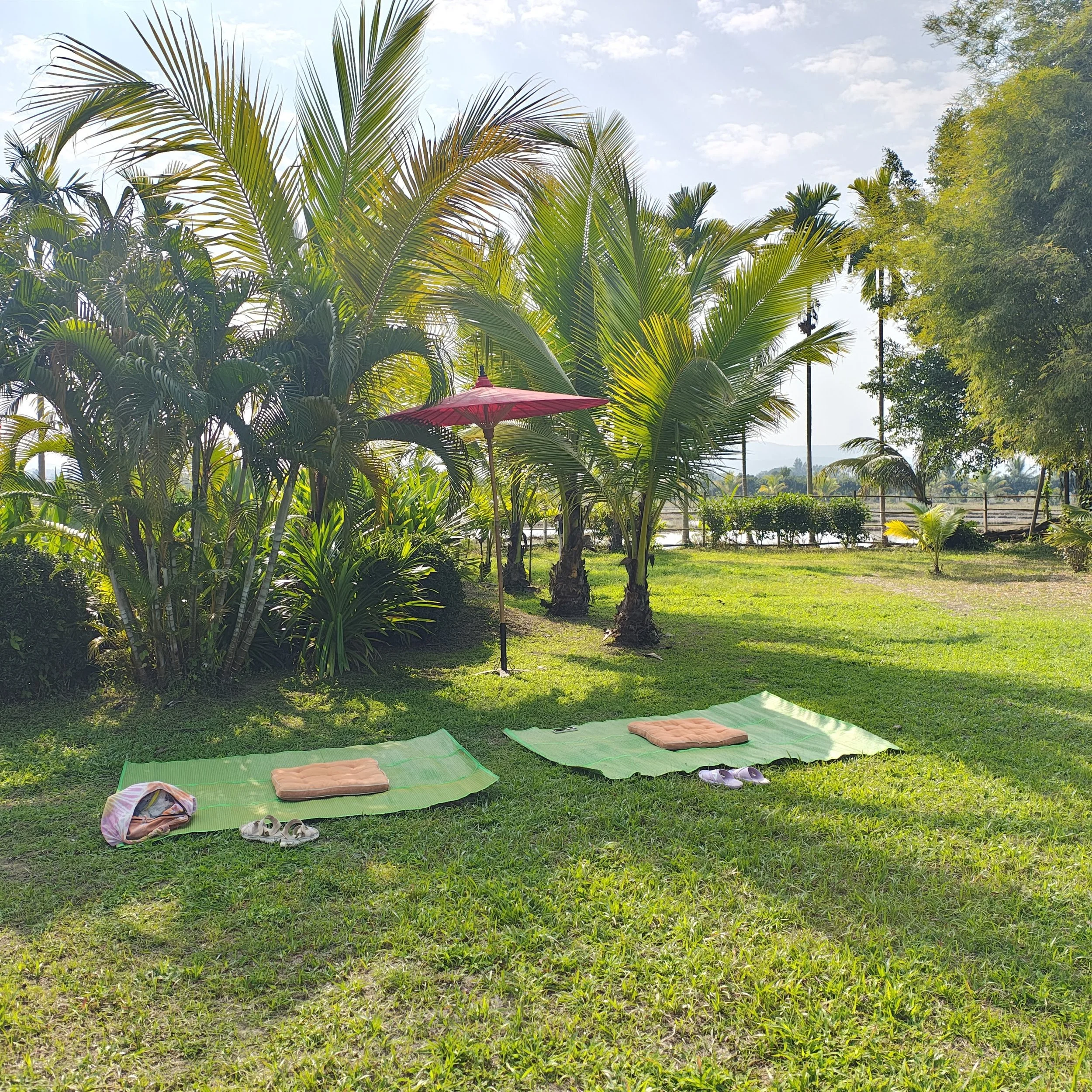Selfcare is not be Self-ish
“Every criticism, judgment, diagnosis, and expression of anger is the tragic expression of an unmet need."———Marshall Rosenberg——-
First, we must get good at identifying our underlying need at any moment. Then we ask ourselves, "Is this a need I should meet for myself, or is it a relational need?". Whatever the answer, healthy communication, either with yourself or another person is the next step
There was a time I believed that slowing down meant falling behind. That saying “no” was selfish. That resting was indulgent. Maybe you’ve felt that too—the quiet guilt that creeps in when you choose yourself.
But here’s what I’ve come to understand: self-care is not selfish. It’s sacred.
It’s the quiet act of listening inward. The deep breath you take before reacting. The gentle voice that says, “You’re allowed to rest.”
It’s not about escaping life—it’s about showing up for it with more presence, patience, and peace.
Putting yourself first means that it may be necessary to say no to someone or something else in order to say yes to yourself. We have all heard the instructions of an airline attendant reminding us to put on our own oxygen mask before we help anyone else with theirs. This advice is often cited as a metaphor for self-care because it so accurately expresses why it is important. It seems to say, ironically, that if you can’t take care of yourself , we might not be able to do it for others. Few situations in our daily lives mimic the wake-up call of an airplane emergency, so it’s easy to keep putting self-care off — easy, that is, until we get sick, overwhelmed, or exhausted and suddenly don’t have the energy to care for the people who count on us. That’s when we realize we haven’t been getting the oxygen we need to sustain ourselves.
We begin to understand that taking care of ourselves is neither selfish nor indulgent; it’s just plain practical. Putting yourself first means that it may be necessary to say no to someone else in order to say yes to yourself. For many of us, there is always something we feel we could be doing for someone else, and it helps to remember the oxygen metaphor. You can even encourage yourself by saying, “I am caring for myself so that I am better able to care for others,” or some other mantra that will encourage you.
It also helps to remember that self-care doesn’t have to be composed of massively time-consuming acts. In fact, the best prescription for taking care of yourself is probably small, daily rituals — like taking 30 minutes for yourself at the beginning and end of the day to meditate, journal, or just be. You also might transform the occasional daily shower or bath into a half-hour self pampering session. Whatever you decide, making some small gesture where you put yourself first every day will pay off in spades for you and the ones you love. The oxygen you need is all around you; sometimes you just need to be aware of it .
MINDFULNESS SELF COMPASSION (MSC) as a major step of Emotional Self care !
“Through Self Compassion we become an inner ally instead of a inner enemy of ourselves “Kristin Neff
Self-Compassion The Proven Power of Being Kind to Yourself- book written by Kristin Kneff
How often do we speak to ourselves in ways we’d never speak to a friend?
Self-compassion is the radical act of turning kindness inward. It means honoring your humanity, your imperfections, your limits—not as flaws to fix, but as truths to hold gently.
When we offer ourselves “grace”, when you pause and ask yourself “what do I need now?” , we don’t become self-centered—we become more grounded, more whole and healtier
The Three Components of Self-Compassion
Self-kindness vs. Self-judgment: offer a tender word or hug to yourself instead of judging yourself
Common humanity vs. Isolation. ...you are NOT the only one going through what is there so get sure to get the right support
Mindfulness vs. Over-identification. Do not get trap into the narrative of your thoughts they are just a thought not your Self , instead build a dialogue with them in order to recognize what is there
Mindfulness gently brings us back to now. It invites us to meet ourselves with compassion instead of criticism.
Mindfulness reminds us that being is enough.
🌳 Nature: A Mirror of What We Need
Nature has a way of showing us what we forget: that seasons shift, that stillness is necessary, that growth takes time. A walk under trees, sitting by water, feeling the sun on your face—it’s not just calming, it’s healing. Nature asks nothing of us but presence. And in that presence, we often find ourselves again.
Softening ,Soothing ,Allowing our Inner Voice is seen as the The YIN side of MSC!!
Let ’s pause for some reflections:
1-HOW EASY AND HOW HARD IS IT FOR YOU TO INTEGRATE SELF-CARE IN YOUR DAILY LIFE?
2-WHAT DO YOU SEE BEING DIFFERENT IF YOU CHOOSE TO CARE FOR YOURSELF AND YOUR NEEDS BEFORE GOING ON WITH YOUR TASKS?
3- WHICH ELEMENT OF NATURE CAN INSPIRE AND SUPPORT YOU IN MEETING YOUR NEEDS?
WELCOME TO SHARE YOUR COMMENTS, INSIGHTS, AND CONNECT WITH ME FOR ANY SUPPORT YOU MIGHT NEED, SO TO LEARN MORE ABOUT YIN AND YANG SIDE MSC !!
HERE A NICE MICRO PRACTICE OFFERED BY BANYAN COMMUNITY ABOUT” Identifying a need and asking for it to be met :Relational self care !”
1. Identify the Emotion:
Ask yourself, "What am I feeling right now?" Name the emotion without judgment, such as fear, frustration, or longing.
2. Uncover the Need:
Delve deeper by asking, "What need is underlying this emotion?" It could be a need for connection, support, rest, or understanding.
3. Formulate Your Request:
Think of one simple, actionable way this need could be met. Frame it positively and clearly, e.g., "I need a listening ear for 10 minutes," or "I could use some help with this task."
4. Communicate Calmly:
When you're ready, approach the appropriate person( OR YOURSELF ) and calmly express your need, saying, "I've realized I need [your identified need]. Would you be willing to [your request]?"
5. Be Open to Dialogue:
Remain open to discussion. If the first approach isn't possible, collaborate to find an alternative that supports your need.
6. Gratitude and Reflection:
After the conversation, express gratitude for their listening and willingness to support. Reflect on the process and how it felt to acknowledge and articulate your needs.
榕树社区提供的一个实用小练习:
"识别需求并寻求满足——关系中的自我关怀!"**
1. **识别情绪**
问自己:"我现在感受到什么?" 不加评判地命名情绪,比如恐惧、沮丧或渴望。
2. **挖掘需求**
深入追问:"这种情绪背后隐藏着什么需求?" 可能是联结、支持、休息或被理解的需要。
3. **明确请求**
思考一个简单可行的解决方式,用积极清晰的语言表达,例如:
"我需要你倾听10分钟",或"希望你能帮我完成这个任务"。
4. **平和沟通**
准备好后,向合适的人(或自己) calmly 表达:
"我意识到我需要[你的需求],你愿意[你的请求]吗?"
5. **保持开放**
如果第一次请求无法实现,共同商讨替代方案来满足需求。
6. **感恩与反思**
对话后感谢对方的倾听与支持,反思整个过程及表达需求带来的感受。
**欢迎分享你的想法与见解!如需了解更多关于"阴阳面MSC"的 support,随时与我联系!**
**免费订阅即可每月接收我的 newsletter 及专属礼物!**
--- WELCOME TO SHARE YOUR COMMENTS , INSIGHTS AND CONNECT WITH ME FOR ANY SUPPORT YOU MIGH NEED SO TO LEARN MORE ABOUT YIN AND YANG SIDE MSC !!
Subscribed for free and you ll receive my monthly newsletter and the gift for you




